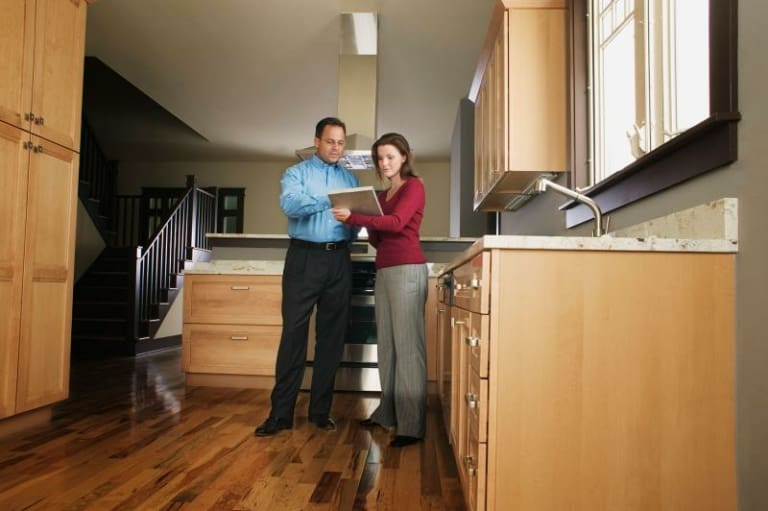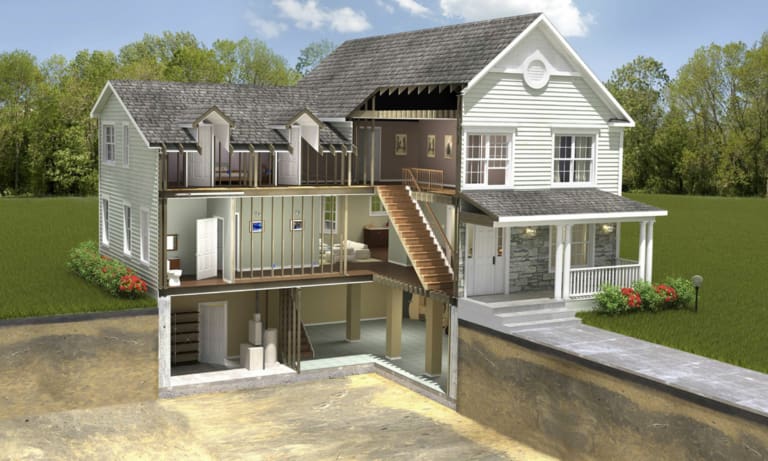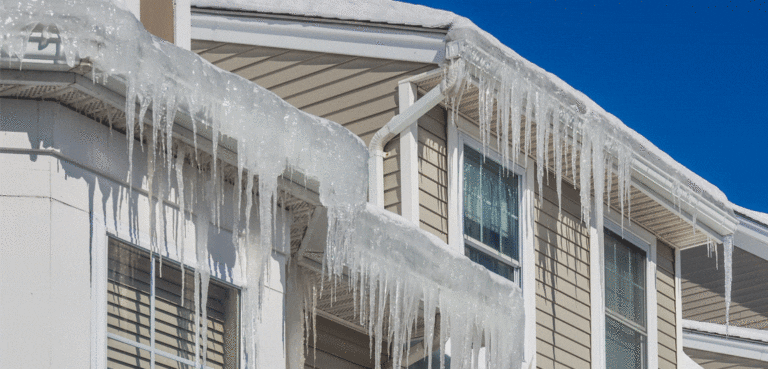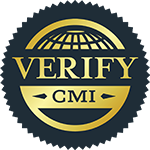PREPARING FOR THE HOME INSPECTION
Preparing for a home inspection is an essential step in the home buying or selling process. A home inspection is a comprehensive evaluation of the property’s condition and structural integrity, and it can uncover issues that may not be apparent to the naked eye. As a result, preparing for the home inspection is critical for both buyers and sellers. Buyers want to ensure they make a sound investment, while sellers want to ensure their property is in good condition and can fetch a fair price. In this context, proper preparation can help both parties avoid surprises and ensure a smooth transaction. This article will provide tips and strategies for preparing for a home inspection, so you can feel confident and prepared when the time comes.
BUYERS

Before the inspection takes place, you should take some important steps to ensure that the process goes as smoothly as possible. Here are some of the things you should keep in mind:
Let us know of any known or potential safety hazards we may encounter. This includes anything from loose wiring to mold or asbestos. Knowing about these hazards beforehand will allow us to take the necessary precautions to keep everyone safe.
Ensure your offer was accepted and you are officially “under contract” to purchase the home before scheduling the appointment with us. This will ensure that the inspection is conducted appropriately and everyone is on the same page.
Provide any documentation that may be helpful, including the Seller’s Disclosure, if possible. This will give us a better understanding of the property and any issues that may need to be addressed during the inspection.
Be sure the inspection agreement and invoice are completed before the appointment. We cannot enter the property otherwise due to liability concerns. Therefore, we must have all the necessary paperwork to ensure the inspection can be conducted safely and efficiently.
Let us know of any lockbox codes or gate codes that may be applicable. This will help us access the property and inspect it without unnecessary delays.
Ensure the seller leaves the primary utility services connected: Electric, water, and gas, in particular. This will allow us to test these systems during the inspection and ensure everything is in good working order.
Encourage the seller to provide reasonable access and workspace around the backyard, attic hatch, garage, HVAC unit(s), electric panel, and water heater for inspection and photos. People often think we have superpowers, but we really can’t see past their stuff! This will help you get the best inspection possible. Contrary to what is seen on some popular TV shows, we do not move personal items.
You and your agent are welcome to accompany us during the inspection. However, you are not required to be there. We understand that you may have other commitments or prefer not to attend, and that’s perfectly fine.
Finally, it’s important to review the Standards of Practice (Below) for more information on what we inspect and do not. This will give you a better understanding of the process and what to expect during the inspection.
By following these steps, you can help ensure that the inspection goes smoothly and that any issues with the property are identified and addressed promptly.
SELLERS

Prior to the inspection, please:
Let us know in advance of any known or potential safety hazards we may encounter: It’s important for us to be aware of any potential safety hazards that we may encounter during the inspection, such as lead paint, asbestos, mold, or other environmental concerns. Please inform us of any hazards before the inspection so that we can take appropriate precautions.
Leave the major utility services connected: Electric, water, and gas, in particular: It’s important that the major utility services, such as electricity, water, and gas, are still connected during the inspection. This allows us to test and evaluate the systems in your home to make sure everything is in working order.
Clean the home! It sounds simple, but an unclean home can also convey the idea that it may have lacked proper maintenance or care: Having a clean home makes it easier for us to inspect the various components of the home, such as walls, floors, and ceilings. A clean home also conveys the impression that the home has been well-maintained and cared for.
Provide reasonable access and workspace around the backyard, attic hatch, garage, HVAC units, electric panel, and water heater for the purpose of photos and inspection. People often think we have superpowers, but we really can’t see past your stuff! To conduct a thorough inspection, we need access to all areas of the home, including the backyard, attic, garage, HVAC units, electric panel, and water heater. Please make sure there is enough workspace and clearance for us to work safely and effectively.
Provide any documentation that will help define exact timelines associated with re-roofing, windows, storm panels, HVAC/Mechanical installation, additions, remodels, and other major repairs, upgrades, or previous inspections concerning these components: Having documentation that outlines the history and maintenance of major components of the home can be very helpful in identifying potential issues or areas that may require additional inspection or attention. If possible, please provide any relevant documentation.
Confine all pets in a secure area, if applicable: For the safety of your pets and our inspectors, it’s important that all pets are secured in a separate area during the inspection. This ensures that we can move around freely and safely without any interference from pets.
Leave keys for locked sheds, sprinkler systems, closets, and attic spaces. You can label the keys and leave them on the kitchen counter: If there are any locked areas of the home that we need access to, such as sheds, closets, or attics, please leave keys and label them so that we can easily find them. It’s important to have access to all areas of the home during the inspection.
If your development is gated, please ensure the inspector has your gate code, or access 24-hours prior: If your home is located in a gated community, please make sure we have the gate code or provide access at least 24 hours prior to the inspection. This ensures that we can enter and inspect the property without any delays or issues.
If you are having a “Move-In Certified” pre-listing inspection, we encourage you and your agent to accompany us during the inspection: This allows you to ask any questions and gain a better understanding of the inspection process and any potential issues that may be identified.
AGENTS AND INVESTORS

We work closely with you and understand your unique position and goals when it comes to inspecting the homes in your pipeline. Our aim is to provide you with the most accurate and useful information possible about each property, which can help you make informed decisions and better serve your clients.
However, we can only do so if certain preparations are made prior to our inspection. Therefore, we kindly request that you encourage the seller to take the following actions before our visit:
Inform us of any known or potential safety hazards that we may encounter during the inspection. This includes anything from structural damage to electrical or plumbing issues, as well as any hazardous materials that may be present on the property.
Ensure that any pets are either confined to a secure area or removed from the property entirely, if applicable. This is important for the safety of our inspectors, as well as the well-being of any animals that may be present.
Confirm that the major utility services – namely electric, water, and gas – are all connected and functioning properly. This will allow us to fully evaluate the property’s infrastructure and identify any potential issues.
Provide any available documentation related to the property, including exact timelines associated with major repairs, upgrades, or previous inspections. This information can be obtained from the seller/owner or their agent, and can be extremely useful in identifying potential issues or areas of concern.
If the property is located within a gated development, please provide us with the gate code or arrange for access 24 hours prior to the inspection. This will ensure that we are able to access the property without delay and conduct a thorough inspection.
Prepare your client for our visit and encourage them to allow us full and reasonable access to all areas of the property. This includes the side and backyards, attics, windows/doors, garages, electric panels, appliances, plumbing fixtures, HVAC, water heaters, and the roof. By providing us with access to all areas of the property, we will be able to take photos and conduct a thorough inspection, which will in turn provide you with the most accurate and useful information possible.
In conclusion, we understand that inspections can be a complex process, but by taking these simple steps prior to our visit, we can help ensure that the process goes smoothly and that you receive the most accurate and useful information possible about each property. Thank you for your cooperation in these matters, and we look forward to working with you.
recent blog post

Finding the Right Home Inspector: Tips and Considerations
Finding the right home inspector is an important step in the home-buying process. A thorough inspection can help ensure that you fully understand the property’s

What is a Home Inspection: A Guide for Homebuyers
What is a Home Inspection? Suppose you’re in the market for a new home. In that case, you may be familiar with the term “home

Ice Dams: A Winter Woe for Minnesota Homeowners
Winter weather can bring many challenges for homeowners, but one of the most unpleasant is the formation of ice dams. Ice dams can cause significant

